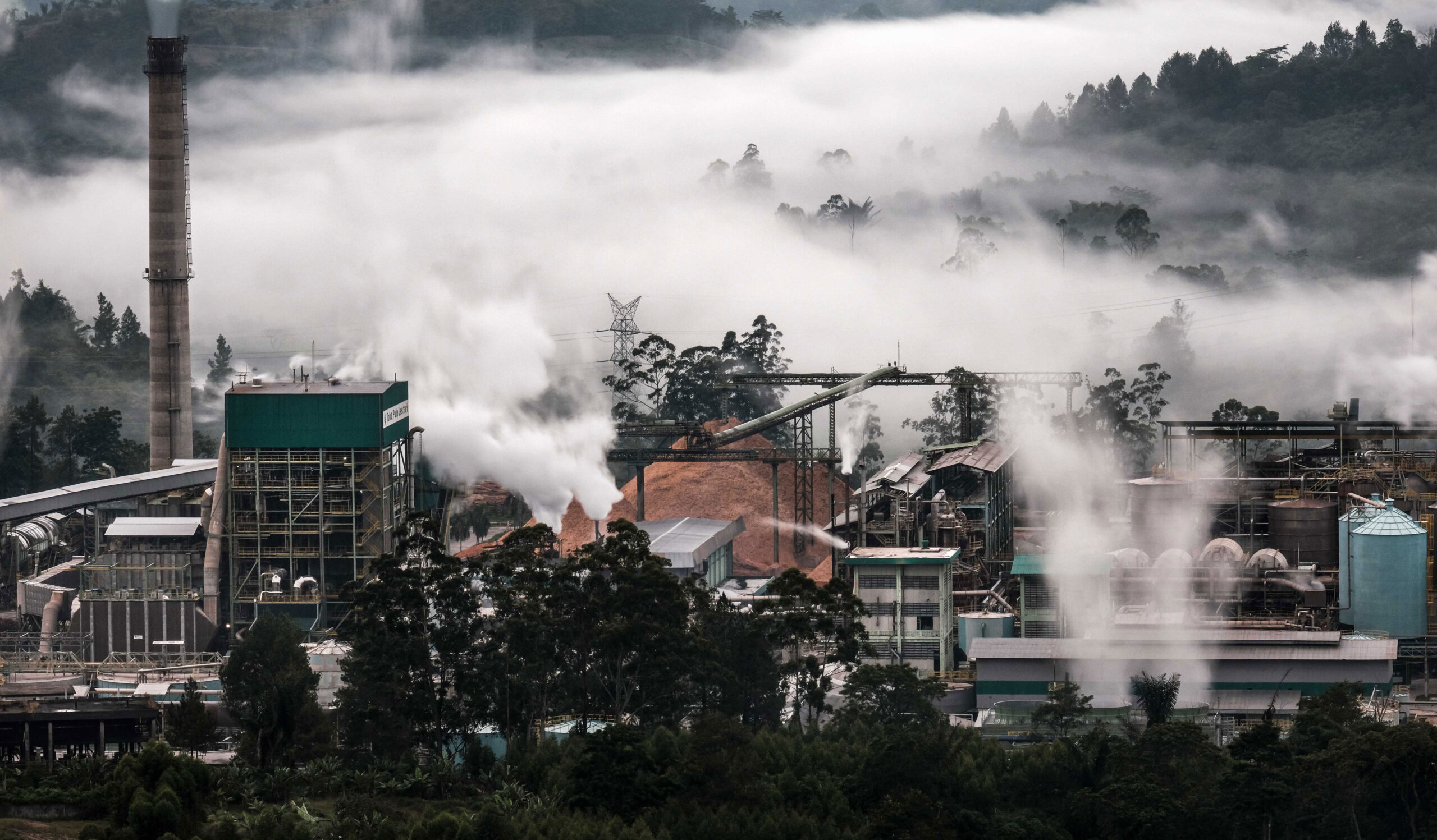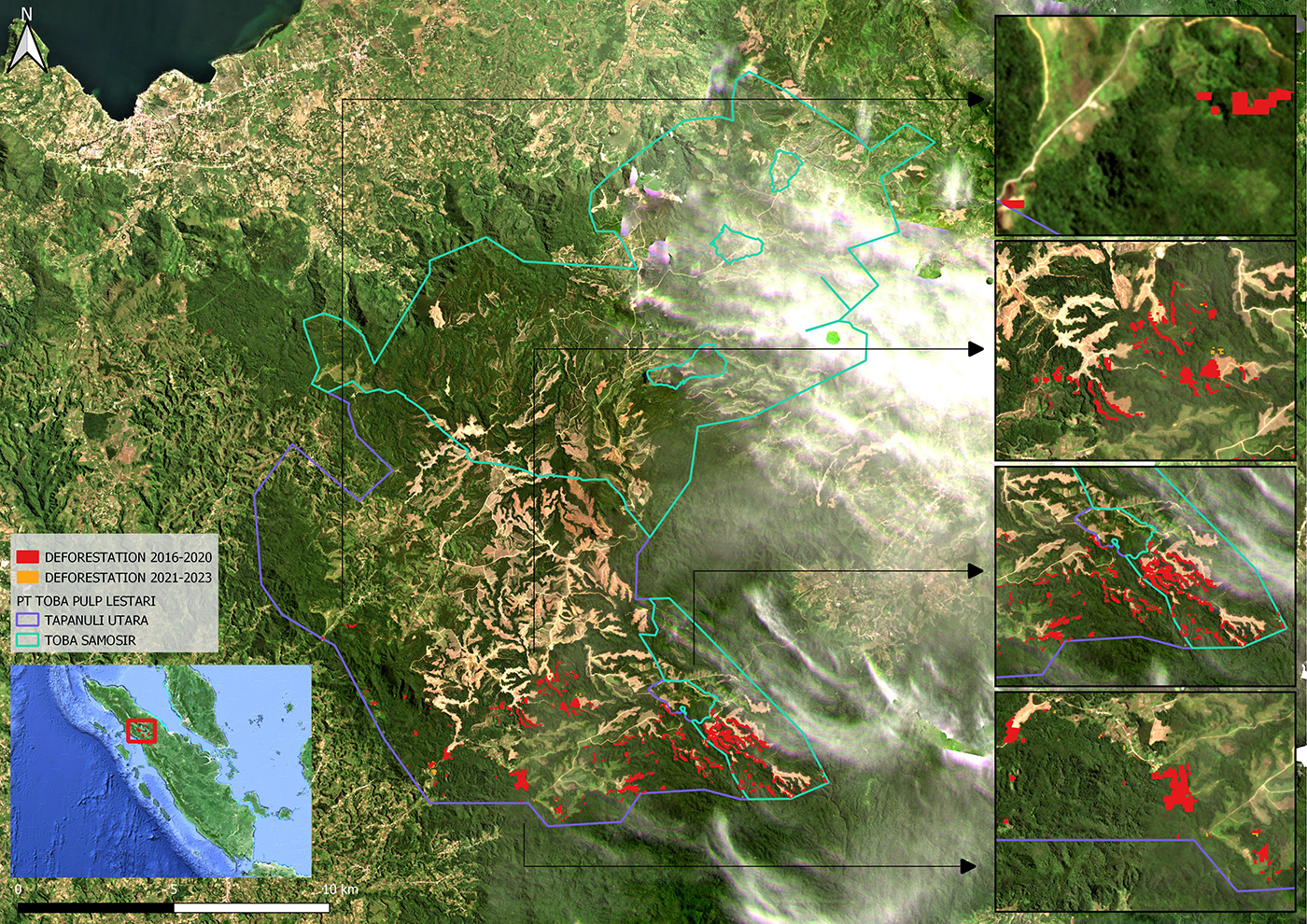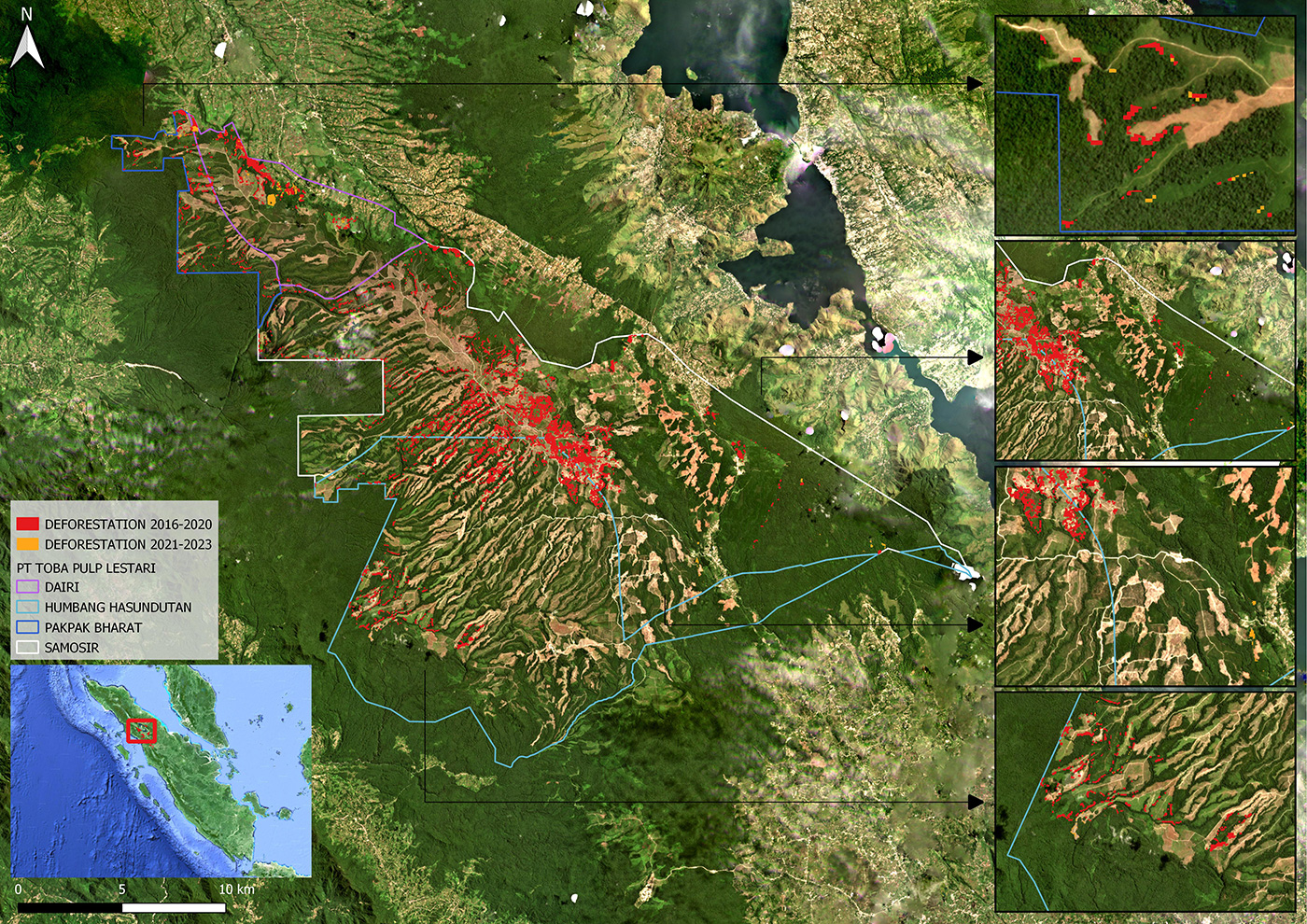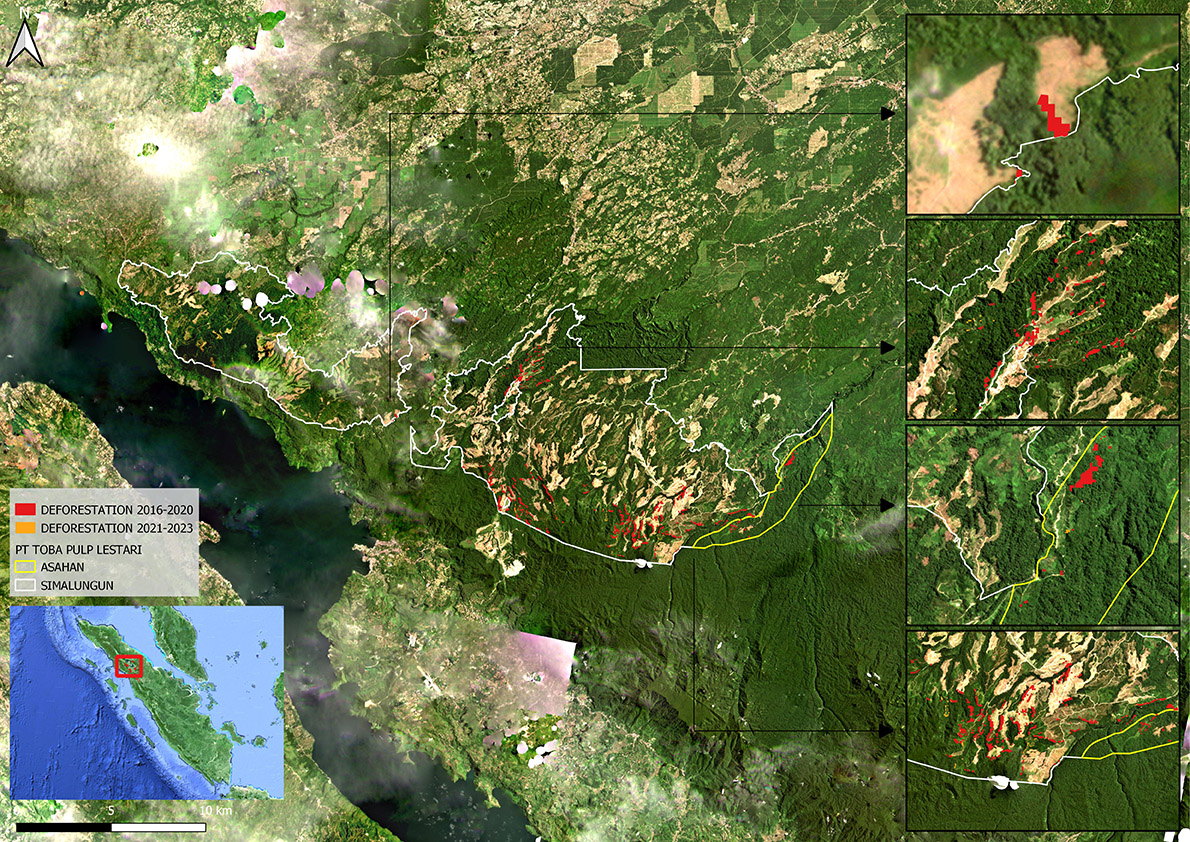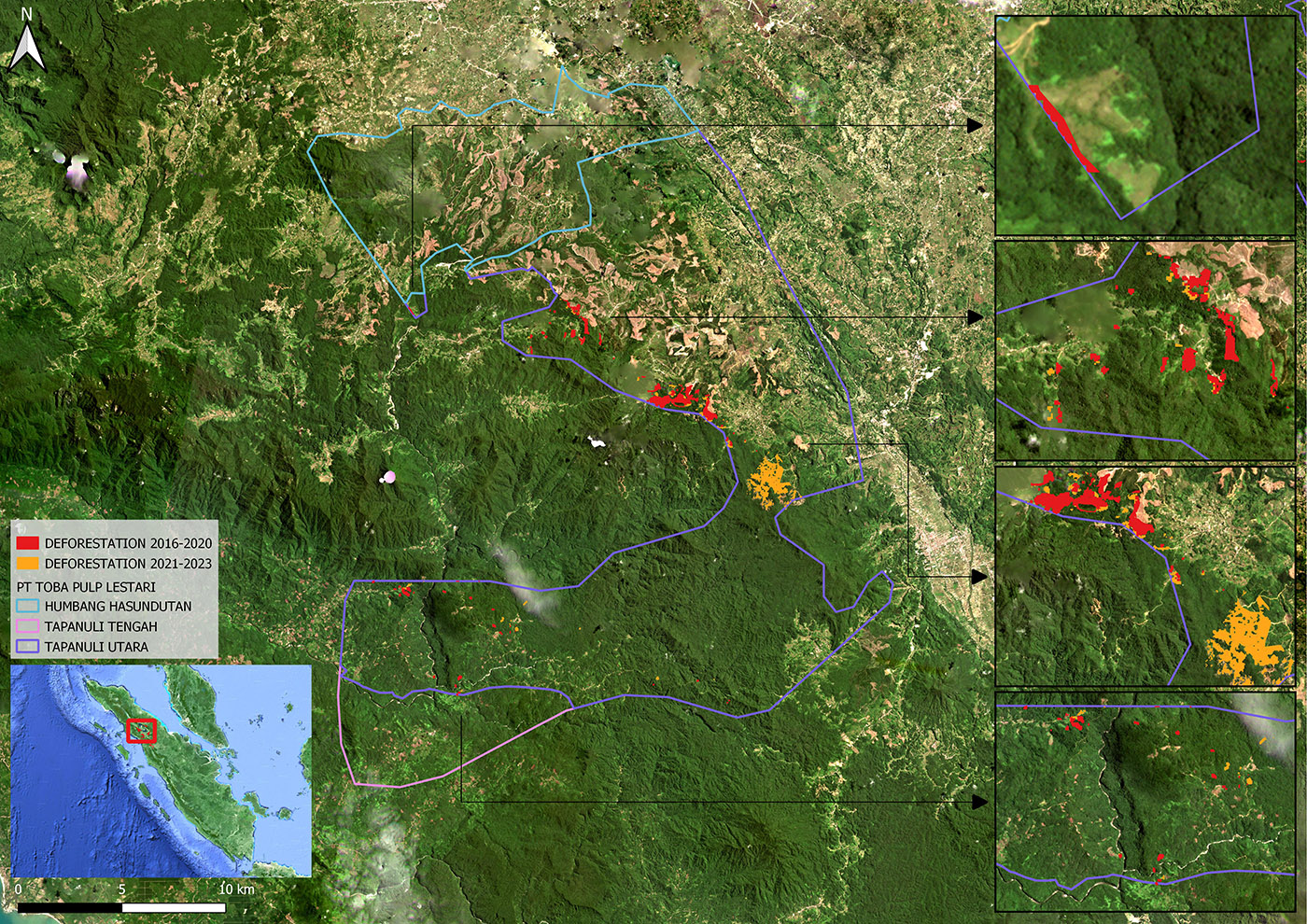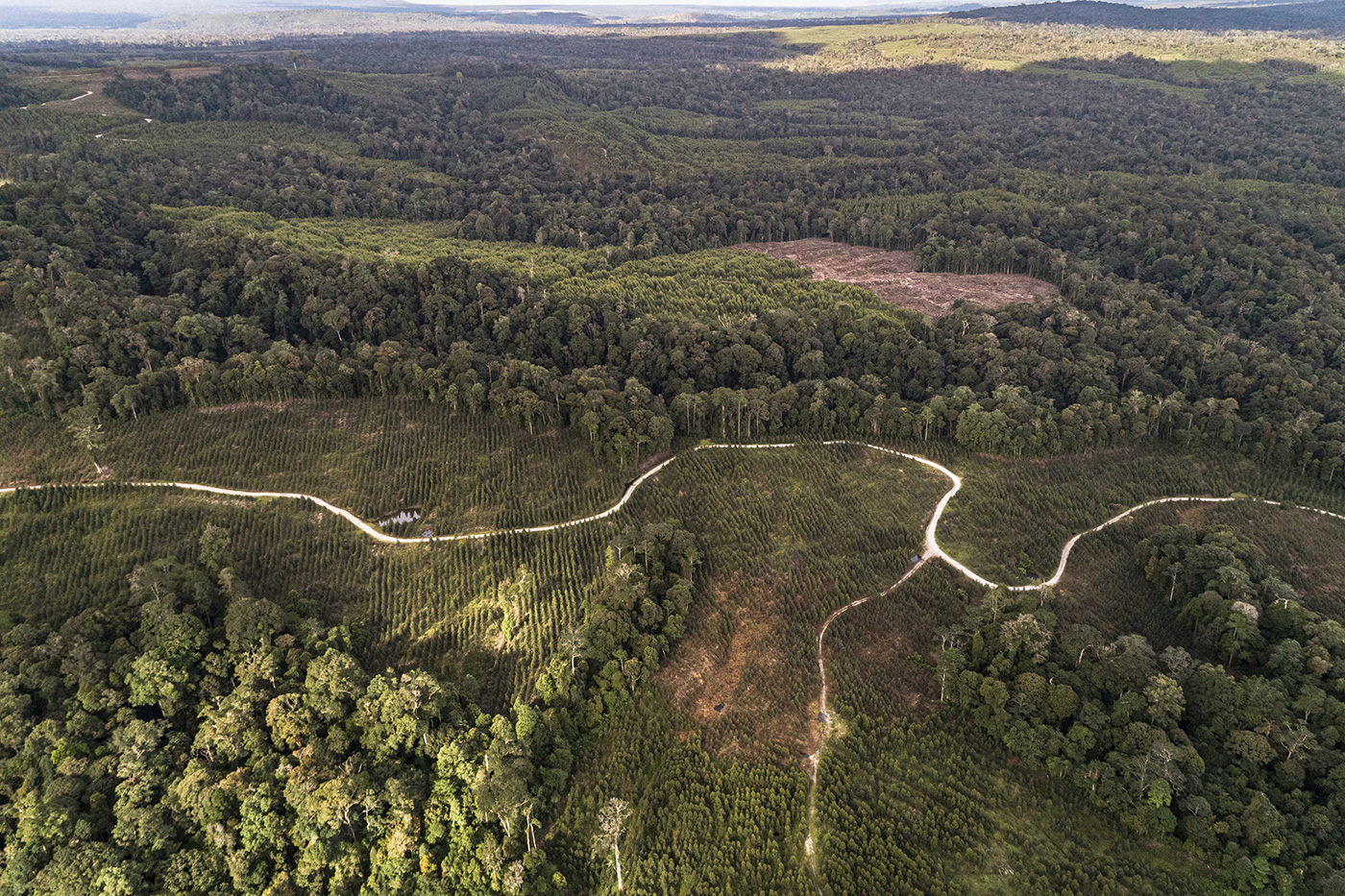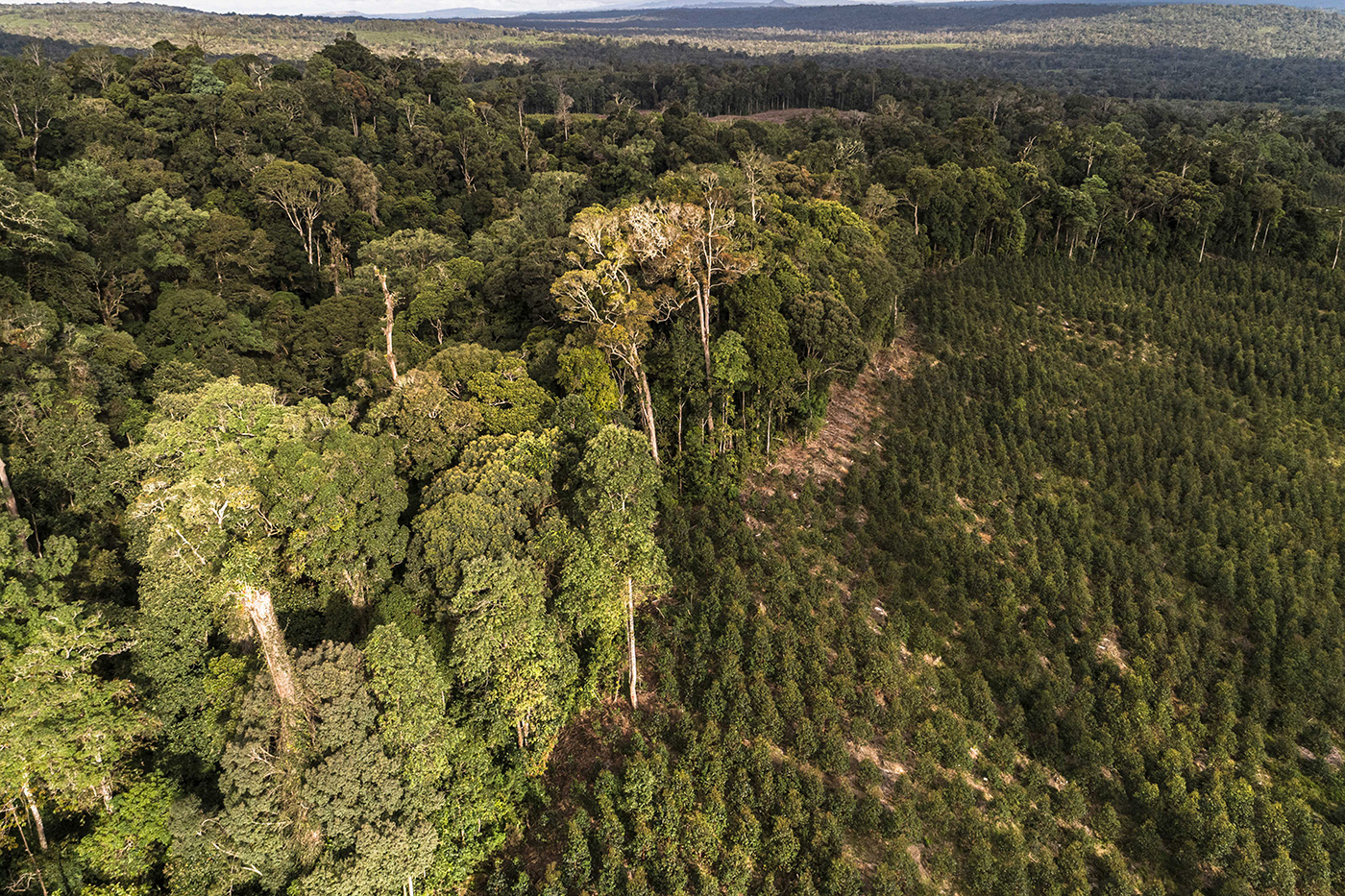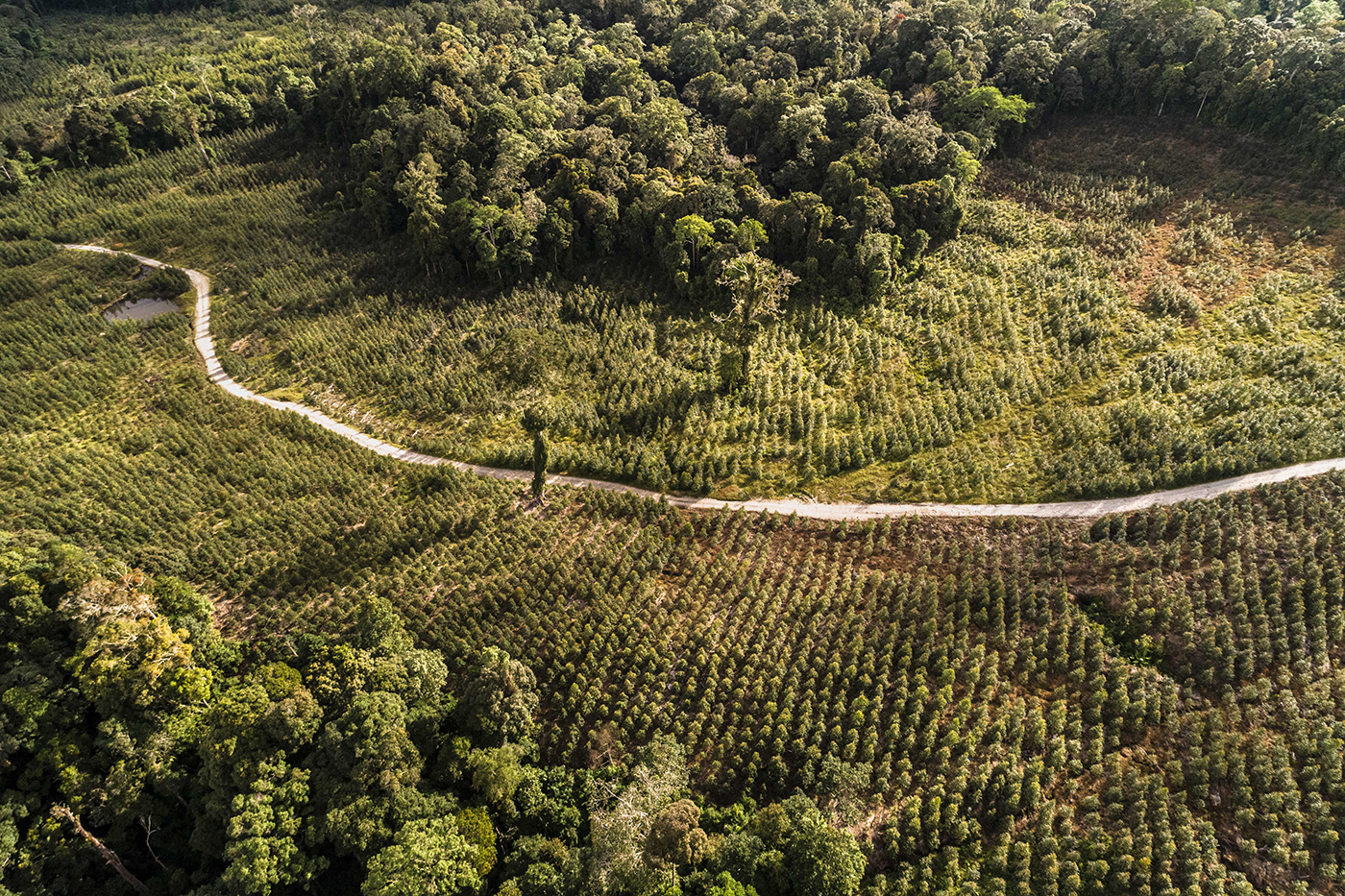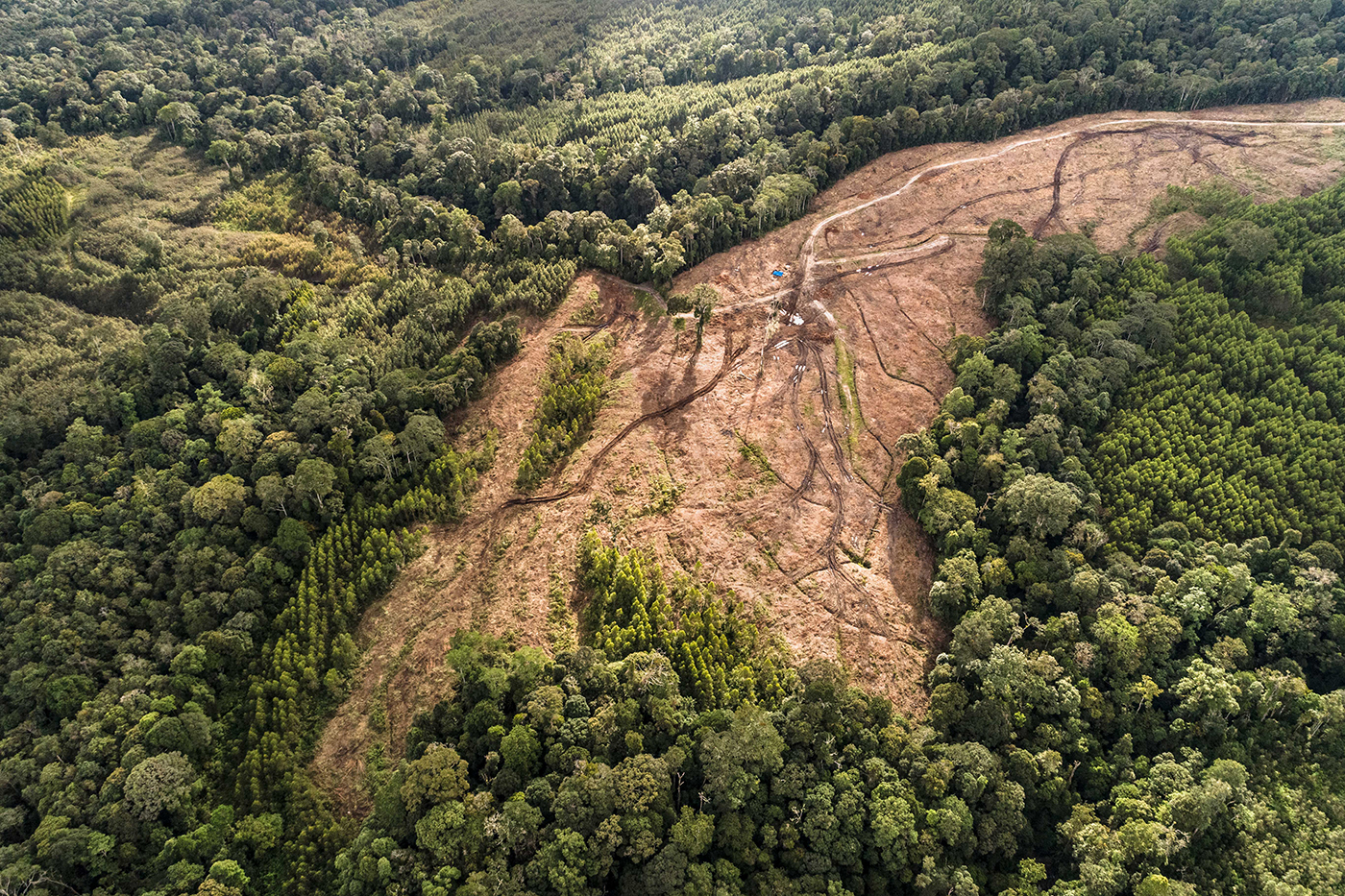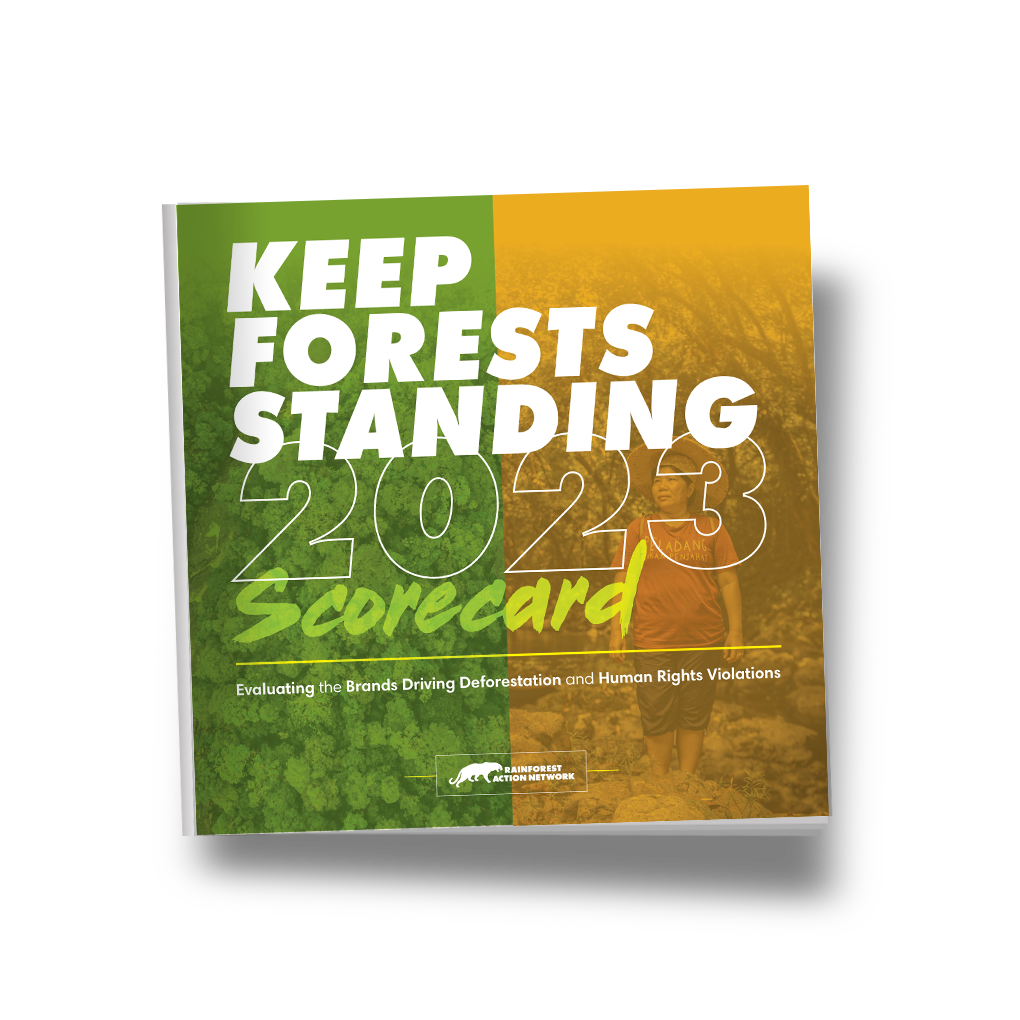Key Findings
- Despite promises to stop driving deforestation, global brands and banks are failing to stop doing business with companies driving deforestation and rights abuses in Indonesia.
- One of the clearest examples is the failure of major brands like Procter & Gamble, Mondelēz, Colgate-Palmolive, Unilever, Kao, PepsiCo, Nestlé and Nissin Foods and banks like Mitsubishi UFJ Financial Group (MUFG) to break ties with the Royal Golden Eagle Group (RGE).
- There is mounting evidence that RGE operates numerous ‘off the books’ operations or ‘shadow companies’ that continue to drive deforestation across Indonesia.
- One important shadow company is PT Toba Pulp Lestari (PT. TPL), which is over 90% owned and controlled by the Tanoto family. Significant areas of forests remain inside PT. TPL concessions and some of these areas are the customary forests of Indigenous communities that are in conflict with PT. TPL.
- The documented deforestation should prohibit PT. TPL’s association with the FSC, as well as preclude PT. TPL products from the EU market under new EU Deforestation Free Regulation (EUDR)
- RAN is calling on all actors that finance, do business with, or source from the RGE Group to immediately suspend business with the RGE Group.
Despite corporate promises to stop driving deforestation, global household brands and banks are failing to ensure that they stop doing business with companies that are driving deforestation and rights abuses in their operations and supply chains in Indonesia.
One of the clearest examples is the failure of major brands like Procter & Gamble, Mondelēz, Colgate-Palmolive, Unilever, Kao, PepsiCo, Nestlé and Nissin Foods and banks like Mitsubishi UFJ Financial Group (MUFG) to break ties with the Royal Golden Eagle Group (RGE).
RGE is a multi-billion dollar conglomerate owned and controlled by the notorious Indonesian tycoon Sukanto Tanoto. The company is Indonesia’s second largest pulp & paper producer and a major producer and trader of palm oil. RGE has been identified by RAN and many others as a prime example of bad corporate behavior through its well documented history of corruption, deception and for driving massive forest destruction and human rights violations. The sprawling business empire contained within RGE has been repeatedly exposed for over a decade for its impacts on Indigenous and traditional communities, tropical rainforests, biodiversity and its massive carbon footprint, and allegations of tax-evasion and the violation of laws prohibiting fires in pulpwood concession areas in Indonesia.
Over a decade ago, RGE’s pulp & paper division APRIL was dropped from the supply chains of Disney and other major publishers after its impacts on Indonesia’s rainforests and Indigenous communities were exposed through global campaigns by RAN. APRIL was dissociated from the Forest Stewardship Council (FSC) certification scheme and to this day APRIL––and others in the RGE Group––remains on the ‘no-buy’ or exclusion lists for major consumers of the products it produces––pulp and paper products used in packaging of consumer goods products and viscose used by fashion companies. In 2015, in response to market pressure, the RGE Group and its flagship companies announced that they were cleaning up their act, publishing sustainability policies that committed to no further deforestation after July 2015 and to remedying its many land conflicts with local communities. Since then, APRIL has begun working on actions to end its disassociation with the FSC––which will require it to remedy the harm it has caused and demonstrate that no deforestation has taken place after December 2020 across its entire corporate group (defined as the full extent of companies under its control).
In June 2023, the RGE Group issued a revised group-wide Sustainability Policy which no longer refers to its commitment to ending deforestation after the cut-off date of July 2015. This controversial move may open the door for APRIL and other companies in the RGE Group to condone 5 years of additional forest destruction in Indonesia as they begin sourcing products that have been produced on lands cleared after its original July 2015 cut-off date and before the FSC’s December 2020 cut-off date. However the controversy does not end there: RGE has never been transparent about the entirety of its business interests and, as detailed in this report and recent publications, there is mounting evidence that RGE operates numerous ‘off the books’ operations or ‘shadow companies’ that continue to drive deforestation across Indonesia, in stark violation of its 2015 and 2023 sustainability policies. Control of these companies is typically obscured by complex corporate ownership structures, offshore companies and nominee shareholders.
Toba Pulp Lestari: A Corporate Culprit Repeat Offender
One important shadow company is the publicly listed PT Toba Pulp Lestari Tbk (IDX:INRU), which is over 90% owned and controlled by the Tanoto family through a complex series of offshore companies (outlined p63-71). Analysis of satellite imagery found that PT. Toba Pulp Lestari (PT. TPL) concessions lost 1,390 ha (3,434 acres) of natural forest after the introduction of RGE’s ‘no deforestation’ policy in 2015. At least 392 (963 acres) hectares of this forest loss occurred after December 2020, the cut-off date for FSC Full Forest Management certification. The documented deforestation since December 2020 should not only prohibit APRIL’s and PT. TPL’s association with FSC, it should also preclude PT. TPL products from being imported into the EU market under new European Union Deforestation Free Regulation (EUDR), which aims to prevent import of commodities that resulted in deforestation after December 2020.
This evidence builds on our 2021 analysis that showed that the RGE group of companies had contributed to fires destroying a staggering estimate of 23,000 hectares (56,834 acres) of forests in Indonesia between 2015 and 2021. These fires were in concessions of the RGE Group’s publicly listed companies and connected ‘shadow’ companies.
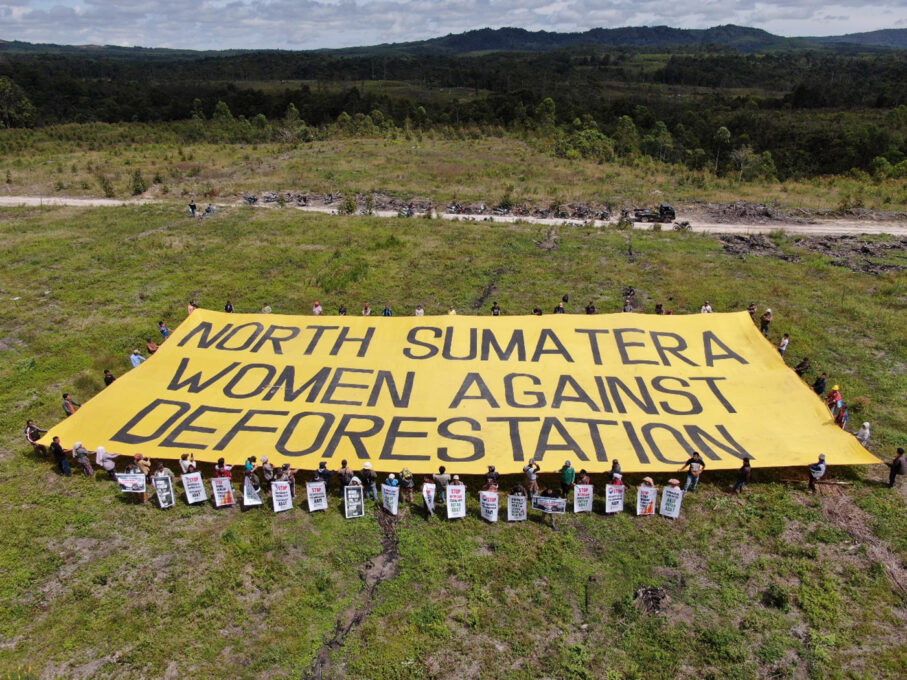
Significant areas of forests remain inside PT. Toba Pulp Lestari concessions and some of these areas are the customary forests of Indigenous communities that are in conflict with PT. TPL due to its failure to respect their customary land rights. Civil society organizations have documented violations of the rights of 23 Indigenous Batak communities––including the Pargamanan-Bintang Maria community––to say no to development on their lands by PT. TPL.
Many Company Names, One Corporate Group
PT. Toba Pulp Lestari Tbk (TPL) is a RGE-connected company, since Mr. Sukanto Tanoto of the Tanoto family is its ultimate beneficiary. PT. TPL was formerly known as PT. Inti Indorayon Utama. It was owned by Mr. Sukanto Tanoto until it was shut down by a former President of Indonesia due to its negative environmental impact and protests from local communities. In 2004, the company changed its name to PT. Toba Pulp Lestari. In 2007, Sukanto Tanoto sold his shares in the company to Pinnacle Company Limited. According to PT. TPL’s 2020 annual report, Pinnacle Company, APRIL and other subsidiaries of the RGE group are listed as related parties that are under ‘common control.’ When asked about allegations of it being under the common control of the RGE Group of companies, PT. TPL has denied being part of the RGE group of companies, saying that it is a “public(ly) listed company in Indonesia with its own Independent Board and Management team.”
RGE has also argued for years that PT. TPL is an independent company and is not connected to RGE or APRIL. PT. TPL is still not listed on RGE’s company website, and the RGE group revised Group Sustainability Policy, which was issued in July 2023, failed to list PT. TPL as part of the group. However, in 2022, the RGE Group issued a statement confirming that it exerts influence over PT. TPL. The statement said RGE has ‘put in place measures to influence TPL’s sustainability performance, including having an RGE senior staff member serve on the Board of Commissioners of TPL along with three other independent Commissioners’ and that “RGE acknowledges the Accountability Framework Initiative and its definition of ‘Corporate Group’” which includes related-party companies.
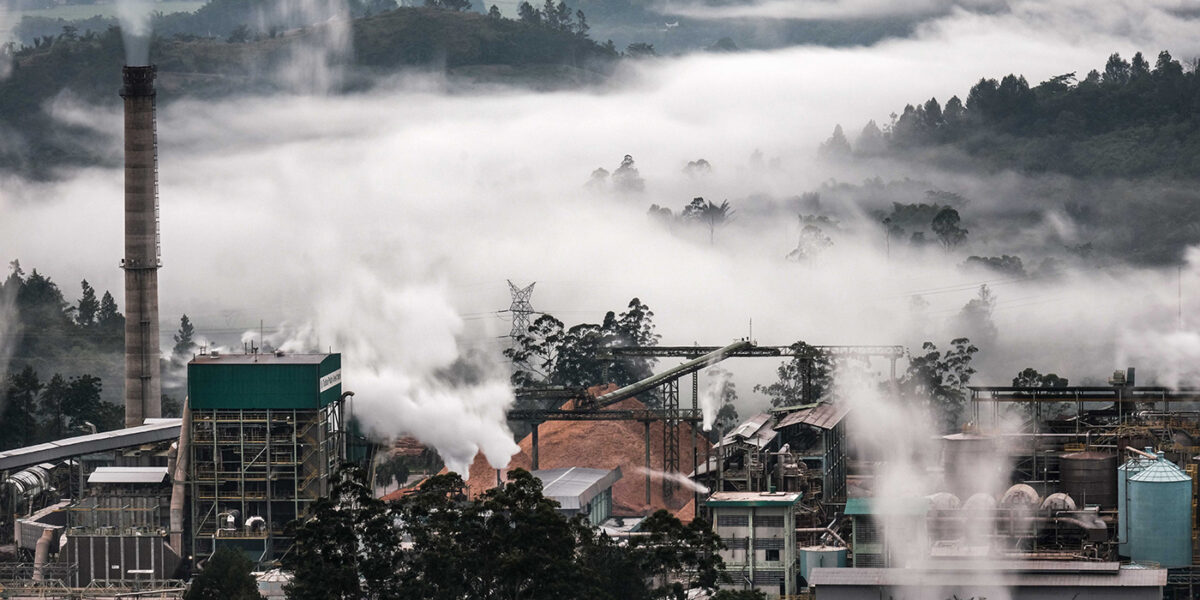
During the FSC’s assessment of APRIL’s corporate group in 2023, the RGE Group appears to have now conceded to the FSC that RGE and PT. TPL are indeed connected, but for some reason the FSC has failed to list all the PT. TPL entities that are in the RGE Group. The list of entities in the RGE group that have been agreed with the FSC continues to exclude numerous other shadow companies driving deforestation in Indonesia’s remaining rainforests that RGE denies it has control over.
RGE’s claims to be “deforestation free” simply should not be trusted. APRIL and TPL’s claims on having resolved land conflicts and remedied the harms caused to Indigenous and traditional communities affected by its operations are false and misleading. It remains an opaque, high-risk group. Banks and brands doing business with one part of RGE are, in reality, exposed to its entire opaque corporate group that continues to drive forest loss.
RAN is calling on all actors that finance, do business with, source from, or associate with, the RGE Group to immediately suspend business or associations with the RGE Group, and investigate our findings.
The Evidence
Deforestation in RGE’s pulpwood operations in North Sumatra, Indonesia
RAN commissioned satellite analysis of forest loss in PT. Toba Pulp Lestari’s industrial tree plantation (HTI) concessions in Indonesia from 2015-2023. Our analysis of satellite imagery found that PT. TPL concessions lost 1,390 ha (3,434 acres) of natural forest after the introduction of RGE’s ‘no deforestation’ policy in 2015. At least 392 hectares (963 acres) of this forest loss occurred after December 2020, the deforestation cut-off date for FSC Full Forest Management certification. The documented deforestation since December 2020 should not only prohibit APRIL’s and TPL’s reassociation with FSC, it should also preclude PT. TPL products from being imported into the EU market under new European Union Deforestation Free Regulation (EUDR), which aims to prevent import of commodities that resulted in deforestation after December 2020.
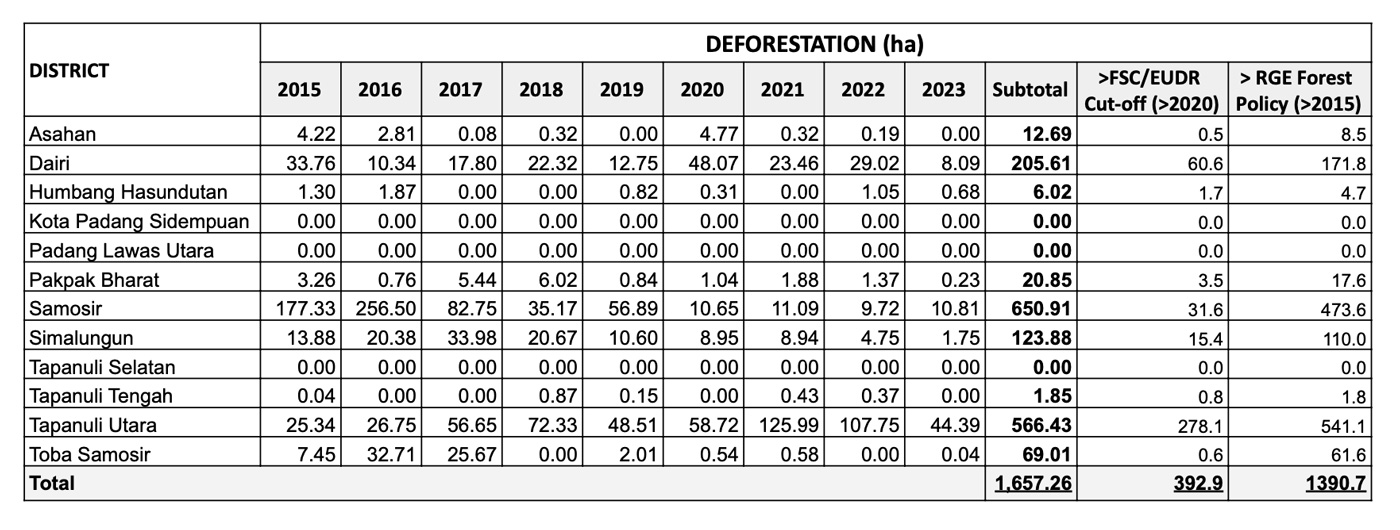
PT. TPL’s concessions in their Aek Raja Estate in the district of Tapanuli Utara (North Tapanuli) saw the largest levels of deforestation between 2015-2023. Over 541 ha (1,336 acres) were cleared between 2016 -2023 with 26.8 ha (67 acres) cleared in 2016, 56.7 ha (141 acres) cleared in 2017, 72.3 ha (178 acres) in 2018, 48.5 ha (120 acres) in 2019, 58.7 ha (146 acres) in 2020, 126.0 ha (311 acres) in 2021, 107.8 ha (266 acres) in 2022 and at least 44.3 ha (109 acres) in 2023. An additional 25.3 ha (62 acres) was cleared in 2015.
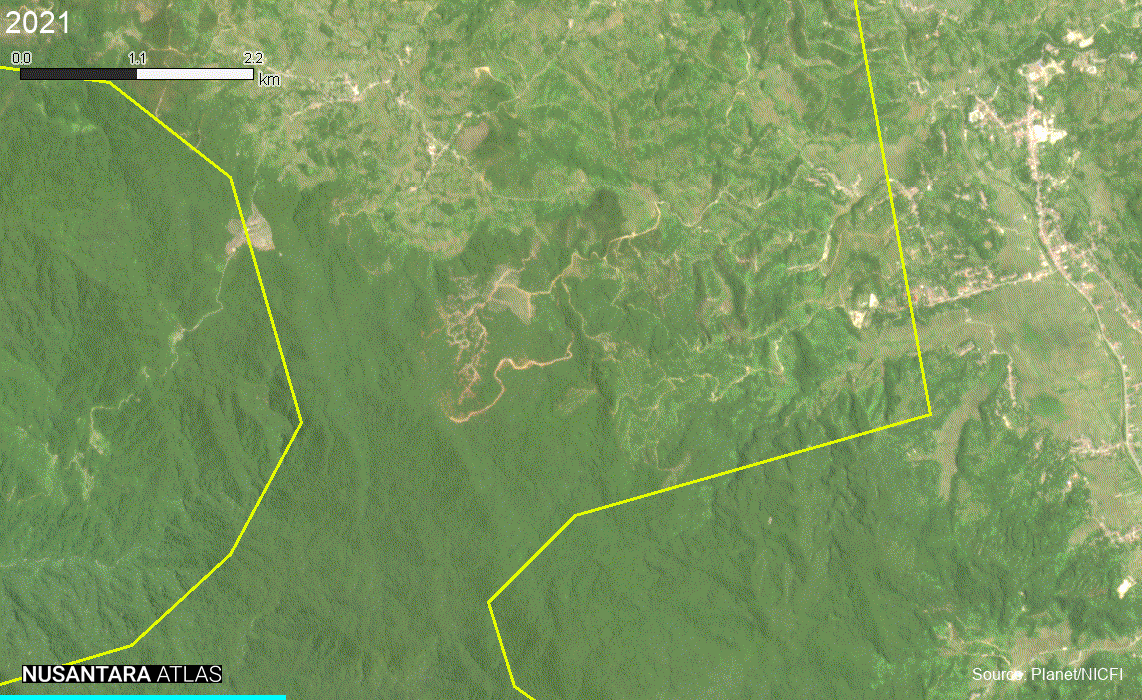
The collection of maps shown in the gallery below show where forests have been cleared within PT. TPL’s concessions despite its commitment to end deforestation after 30th June 2014, or previous commitments made by the Royal Golden Eagle Group to end deforestation across its operations after July 2015.
For more detailed spatial data review our case report on Deforestation in PT. Toba Pulp Lestari’s concessions in Indonesia.
PT. Toba Pulp Lestari’s failure to respect the rights of Indigenous and traditional communities to say ‘No’ to development on their territories
Significant areas of forests remain inside PT. Toba Pulp Lestari concessions and some of these areas are the customary forests of Indigenous communities that are in conflict with PT. TPL due to its failure to respect their customary land rights. Several communities continue to call on PT. TPL to excise their customary forests and lands from within their concession areas––a critical step in securing legal recognition of their land rights and control over their territories.
The customary forests around the Lake Toba region are central to the culture and livelihood of Indigenous Batak Toba communities that have depended on the land, forests and the traditional harvesting of native benzoin forests (kemenyan) for generations. Their forests and lands are a source of food, tradition and play a critical role in the health of the rivers flowing to downstream communities and provide shelter, medicine, food and livelihoods.
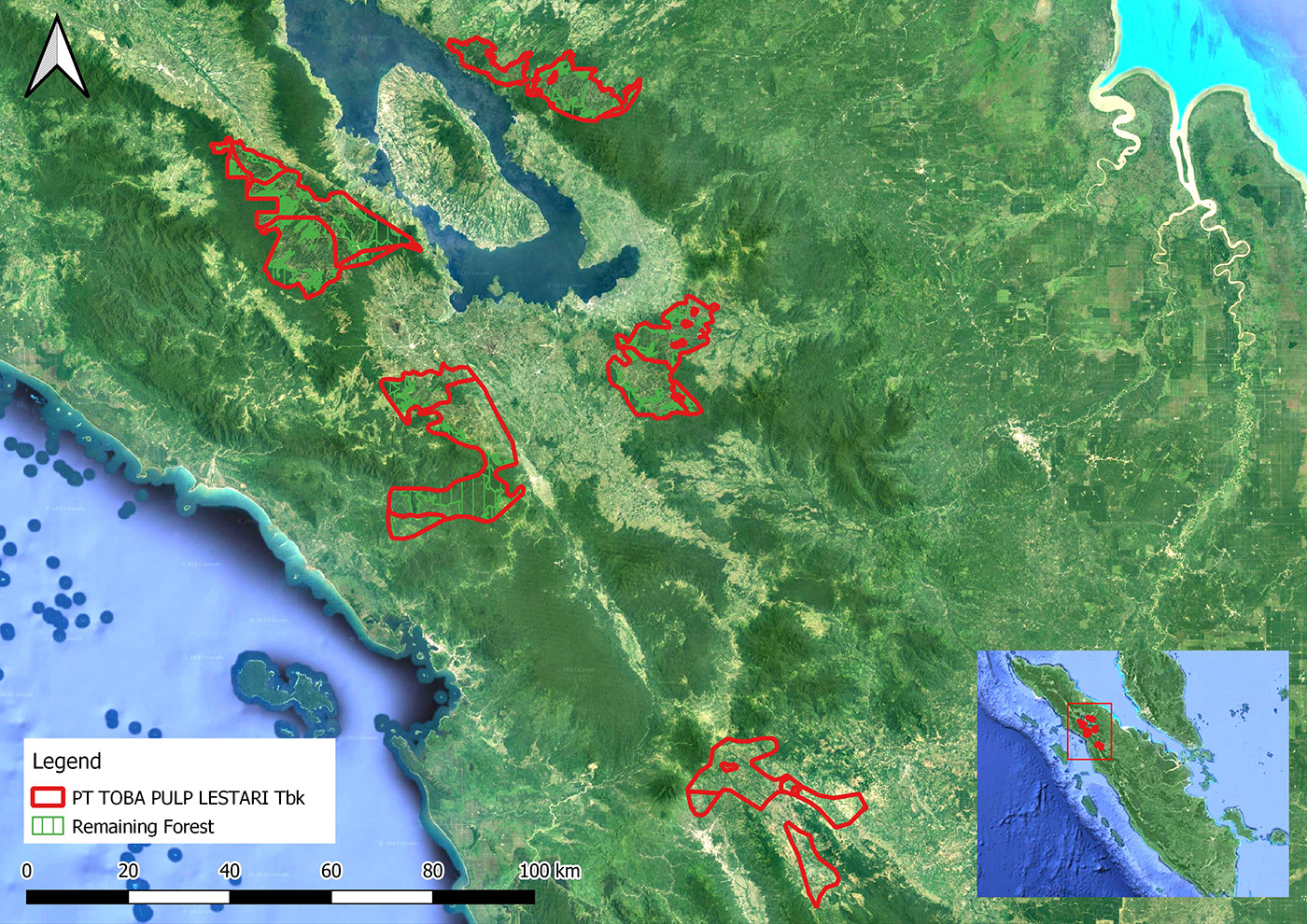
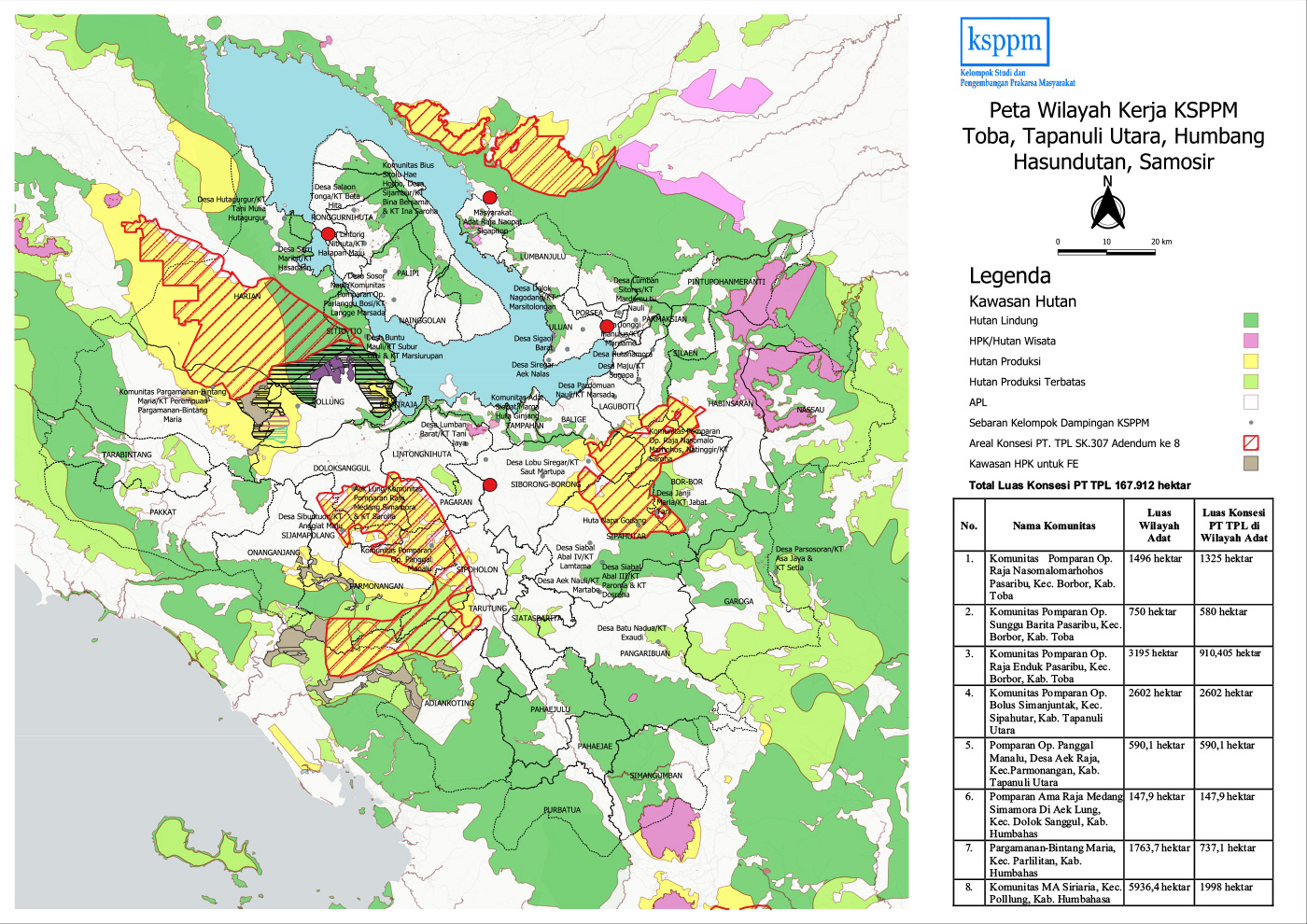
Civil society organizations have documented violations of the rights of 23 Indigenous Batak communities––including the Pargamanan-Bintang Maria (PBM) community––to say no to development on their lands by PT. Toba Pulp Lestari. To date, PT. Toba Pulp Lestari has refused to issue a public commitment stating its support for the excision of the contested lands of the Pargamanan-Bintang Maria community from its pulp concession in North Sumatra. Instead, it has hired a consultant, Earthworm, that has set up a program in the region and begun mapping conflicts and Indigenous territories with neighboring communities.
Local civil society organizations have raised concerns about unprofessional practices being employed during Earthworm’s stakeholder consultation process. A statement issued by local CSOs cited members of the Pargamanan-Bintang Maria community’s rejection of Earthworm’s program and an increase in cases of intimidation by community groups that support PT. TPL against PBM community members who have spoken out against PT. TPL’s presence on their customary lands since Earthworm’s program with PT. TPL began. Throughout 2023, concerns were raised that mapping efforts were being undertaken by Earthworm with neighboring communities without consulting the community-appointed representatives of the Pargamanan-Bintang Maria community that oppose PT. TPL’s plantation development. These groups believe Earthworm’s program is not helping to reach a resolution on this critical case. Instead, it is notable that Earthworm has refused to admit to any of the alleged wrong-doings and continues to work on behalf of TPL on the ground in a way that is exacerbating tension between the Pargamanan-Bintang Maria community members and neighboring communities.
Additional reports have been published recently by local civil society organizations on the impact of PT. Toba Pulp Lestari on Indigenous and local communities. According to Betahita, in 2023 alone, at least twelve Indigenous community members fighting PT. TPL experienced intimidation, and between 2015 to 2022, the activities of 75 Indigenous community members have been criminalized. Unfortunately, these specific cases represent the tip of the iceberg of an even larger problem and are a consequence of brands and banks turning a blind eye to decades of land grabbing and violations of land rights by their business partners.
RAN also assessed RGE Group’s policies and procedures for fulfilling international human rights norms on Indigenous and traditional community rights to Free, Prior and Informed Consent in its report “The Need for FPIC”. RAN presented the weakness in its policies and procedures that must be addressed to RGE Group, and its business partners, but to date no improvements have been made.
Global Brands Failure to Suspend Royal Golden Eagle Group
Despite the many, ongoing controversies in RGE’s operations in the palm oil and forestry sectors in Indonesia, the conglomerate continues to profit from its joint venture operations with Kao and its palm oil business which supplies palm oil to some of the world’s most influential brands. Procter & Gamble continues to buy palm oil from one arm of RGE, claiming that what one branch of the corporate group is doing is not relevant to the relationship they maintain with another branch, even though the same people are profiting from both branches. Unilever continues to source palm oil from RGE and is the only brand that states that it recognizes the need to engage with RGE on resolving all of the non-compliance issues RAN has exposed across the entire corporate group, not just in the operations that are linked to its physical palm oil supply chain.
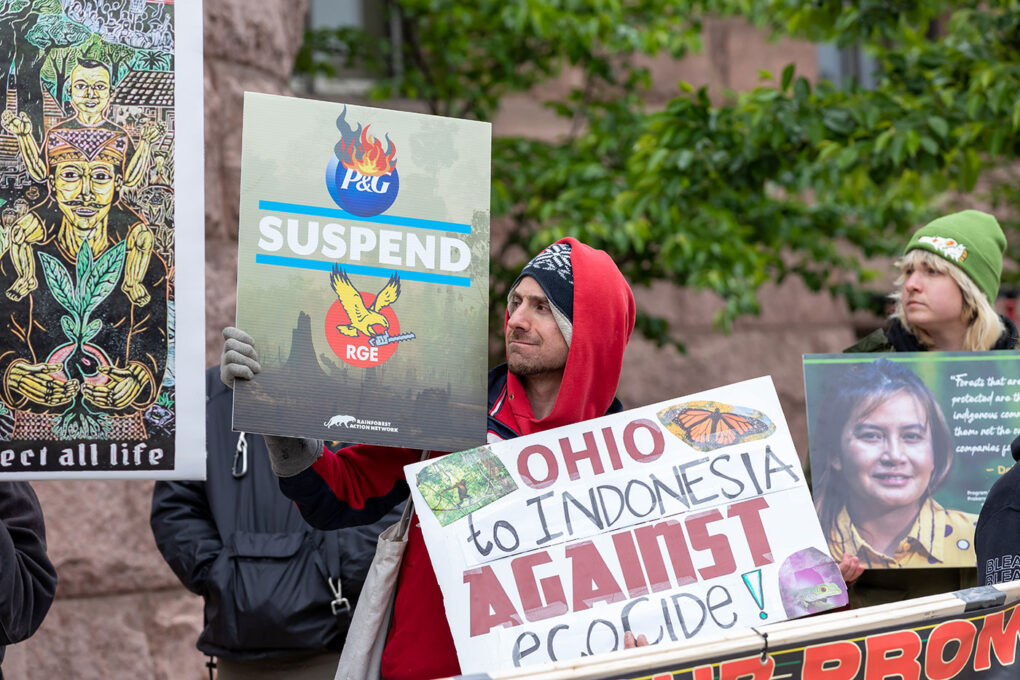
Colgate-Palmolive and Kao have recently strengthened their No Deforestation, No Peatland and No Exploitation (NDPE) policies to require adherence at a corporate group level. However, neither brand has demonstrated the implementation of this new commitment through suspending the RGE Group. Colgate-Palmolive recently published its grievance log– which recognizes the complaint that has been raised against the Royal Golden Eagle Group––but to date it has failed to list the controversial supplier on its No-Buy list.
Mondelēz is the only brand that has issued a statement claiming it does not source from RGE, but its latest published mill list lists RGE’s palm oil companies as suppliers. Other brands claim to have suspended sourcing palm oil from the RGE Group but have failed to disclose this publically.
Procter & Gamble, Mondelēz, Colgate-Palmolive, Unilever, Kao, PepsiCo, Nestlé and Nissin Foods all claim they do not source from PT. Toba Pulp Lestari. Most of the brands claim to not source from RGE’s wider industrial timber and wood pulp operations, with the exception of Nestlé that discloses its sourcing of pulp from APRIL’s pulp mill in Indonesia. However, public reporting by all the brands on their wood pulp, paper and packaging supply chains are not detailed enough to verify if these claims are accurate given they do not disclose details of raw material producers. This means we can’t rule out the brand’s connections to RGE’s pulp operations through its pulp and paper mills in Indonesia, China, and Brazil, or via third-party paper and packaging mills in other countries like Bangladesh, India, South Korea, Vietnam, Turkey or United Arab Emirates that have recently sourced wood pulp from the RGE group.
Banks Indirectly Financing Deforestation Through ‘Sustainability Loans’
Data from Forests & Finance indicates that the Royal Golden Eagle (RGE) Group has received US $6.8 billion in credit from 2018 – September 2023, making it the second largest overall recipient of forest-risk financing in Indonesia. Around 80% of this is estimated to finance RGE’s worldwide pulp & paper operations and 20% to finance its palm oil production and trading business.
RGE group has increasingly sought to arrange credit as so-called Sustainability Linked Loans (SLLs) with syndicates of major international banks, including those with NDPE aligned policies like Japanese megabank Mitsubishi UFJ Financial Group (MUFG). MUFG has provided over $300 million in credit since 2018, and RGE has publicly championed MUFG’s role as its creditor and lead sustainable finance advisor for a new US $1 billion sustainability loan announced in 2024. These loans are set against environmental Key Performance Indicators, which reportedly align with “broad goals” that include “zero tolerance for deforestation” and “radical traceability and transparency.” As this report and others set out, RGE’s opaque relationship with PT. TPL, a company that continues to clear forest and violate customary rights, appears contradictory to the stated goals.
MUFG clearly plays an pivotal role in securing RGE’s huge new lines of credit. However, its NDPE policies do not currently apply to their clients’ entire corporate group. This provides the bank with a loophole to distance themselves from the impacts of PT. TPL and other RGE shadow company operations.
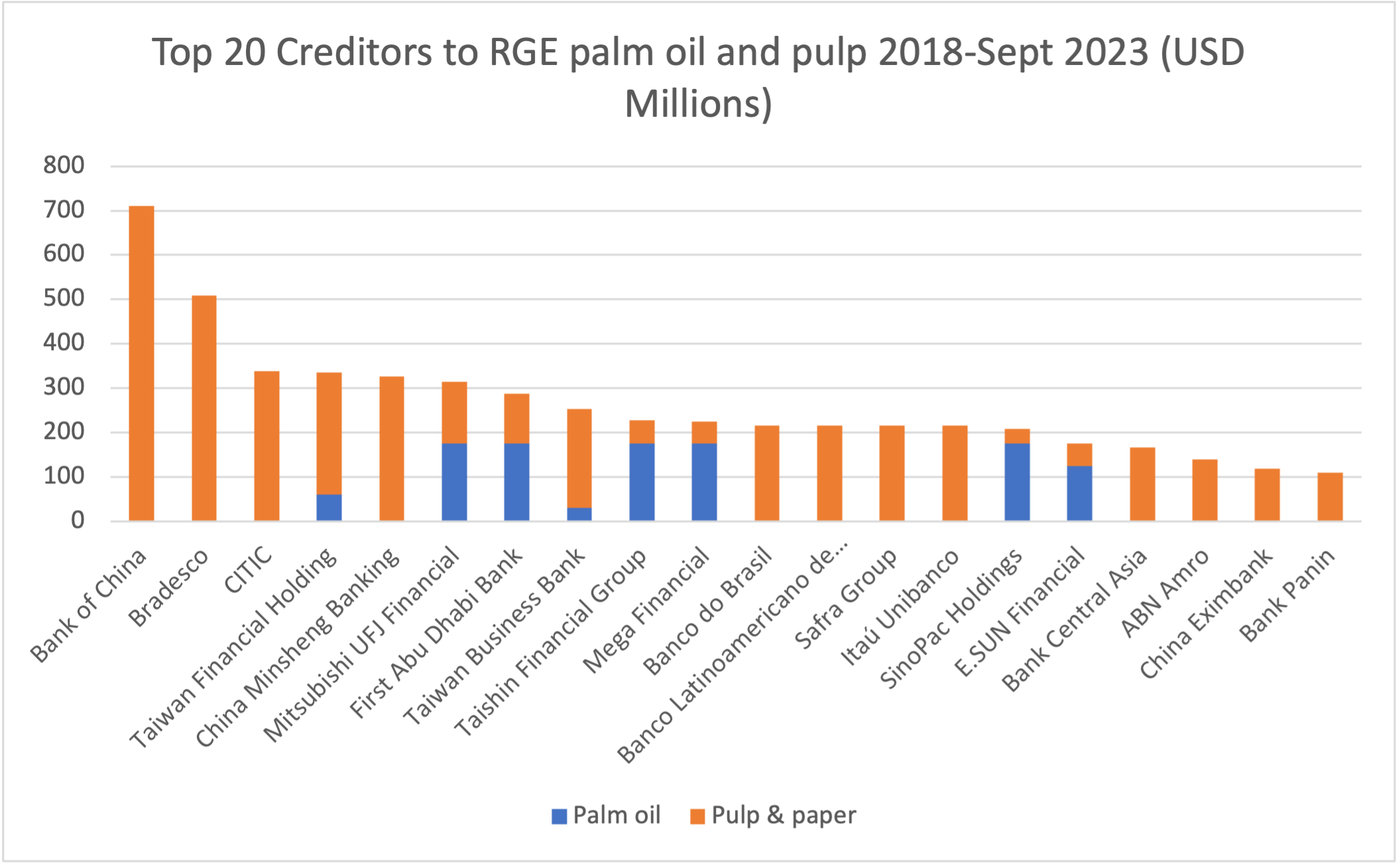
The Denial
Royal Golden Eagle Group’s response to our findings
The Royal Golden Eagle Group was asked to comment on the findings on the extent of deforestation within PT. Toba Pulp Lestari’s operations in Indonesia, as taken from spatial analysis commissioned by RAN. The RGE Group and APRIL did not respond to this request. PT. TPL did respond and in its response denied any deforestation in its operations and violations of the 2015 and 2020 deforestation cut-off dates. Without responding to the detail of findings concerning satellite analysis of locations of deforestation, they stated that PT. TPL did not clear any natural forests and that any land cover change appears to be related to legal and compliant plantation management activities. In response to the allegations of deforestation in the district of Aek Raja, PT. TPL confirmed clearing of natural forests but stated it was the result of illegal logging and it had reported the incident to the authorities. PT. TPL claims to have updated their Sustainability Policy in 2023 and this policy continues to reference July 2014 as the end date to the sourcing of natural wood.
PT. TPL stated it is not in a position to excise the area being claimed by some members of the Pargamanan Bintang Maria community from their concession but will abide by the results of any valid land claim process. Whilst they recognize in their response that 73 families within the Pargamanan Bintang Maria community have opposed a partnership, they claim to be unaware of any formal land claim application made by members of the community to the government. This claim is questionable as there have been public accounts on the fact that, in March 2022, representatives of the Pargamanan-Bintang Maria community submitted a petition to the local and national government requesting their lands to be recognized as customary forest (hutan adat)–a process that PT. TPL can support through initiating its own formal communication to the government if it were serious about respecting Indigenous rights.
PT. TPL states that FSC includes it in APRIL’s Corporate Group based on control but maintains that it is a publicly listed company and not part of the RGE group.
The denial of deforestation by PT. TPL––and the evidence published by RAN––needs to be thoroughly investigated by brands and banks that do business with the RGE Group and the Forestry Stewardship Council. RAN is calling on all actors that finance, do business with, source from, or associate with, the RGE Group to immediately suspend business or associations with the RGE Group, and investigate our findings.
